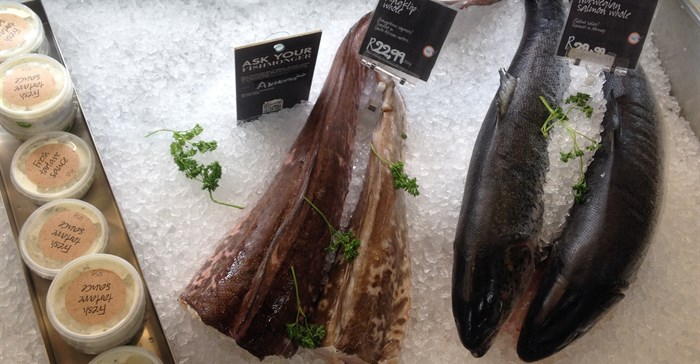
Top stories






More news

Marketing & Media
Ads are coming to AI. Does that really have to be such a bad thing?















In 2013 Woolworths made a commitment that by the end of 2015, all its wild-caught seafood would be:
By the end of 2015, Woolworths has reported that 92% of all wild-caught seafood sold, by volume, met these goals. By May 2016, that increased to 97% of its wild-caught seafood being either WWF-SASSI Green-listed, or MSC certified, or in a specific and credible, time-bound improvement project. There are also some seafood species that Woolworths sells that are not currently assessed by either WWF-SASSI or certified by the MSC. Without the resources to assess every fish species, WWF-SASSI prioritises species according to sustainability risk and fishing volumes.
“We’re proud to have achieved these very challenging goals,” said Spencer Sonn, Woolworths MD of foods. “It would not have been possible without the involvement and commitment from our suppliers, the fishing industry and our sustainability partners, the WWF-SA through their WWF-SASSI programme and the Marine Stewardship Council (MSC). I take great pride in knowing that Woolies customers can have the peace of mind that the wild-caught seafood products they buy from us have been responsibly sourced.”
To date, Woolworths offers consumers 17 species of sustainably wild-caught seafood. Each fishery has its own unique sustainability challenges and tailor-made solutions have had to be implemented by its suppliers to ensure they are properly managed and protected. A major achievement in this journey was the WWF-SASSI Green-listing of South African Hake caught by long-line fishing.
With the setting of any ambitious targets, there are always numerous lessons to be learned and shared along the way. The two species that we faced challenges with were kingklip and Mozambican prawns.

Kingklip (Genypterus capensis) caught in the South African deep-water Hake Trawl fishery was a major concern. This species was Orange-listed by WWF-SASSI, and there has been an urgency for Woolworths' partners to implement a credible, time-bound improvement project. Woolworths has supported WWF-SA, South African Deep-Sea Trawling Industry Association (SADSTIA) and the Department of Agriculture, Forestry and Fisheries (DAFF) by advocating the launch of their Bycatch Project aimed at improving the WWF-SASSI status of the 12 key bycatch species caught in the fishery. The fishery has now launched a formal Fishery Conservation Project (FCP) that meets the WWF-SA ‘Fisheries in Transition’ criteria. Woolworths recognised this positive action and chose to keep supporting this fishery in its efforts to improve the WWF-SASSI outcome of bycatch species rather than remove this species from its procurement streams. It will meet its commitment with the launch of its credible, time-bound improvement project.
Woolworths needed to take a different approach when it came to the Mozambican prawns. It was procuring the Indian White Shrimp (Fenneropenaeus indicus) caught in the shallow-water prawn trawl fishery in Mozambique. Following unsuccessful attempts at engaging the relevant stakeholders in implementing a credible improvement project, Woolworths decided last year to stop its procurement from this fishery. As this was a frozen product, the stock was available in-store after this decision was made and is currently being sold out.
“We congratulate Woolworths on the achievement of these significant goals,” said Chris Kastern, WWF-SASSI’s manager for seafood market transformation, “We recognise the commitment and effort that Woolworths has invested in sourcing sustainable seafood options. It is playing a leading role in creating strong market incentives that drive the South Africa fishing industry towards improved sustainability. This is vital to ensure that key fish stocks continue to be responsibly harvested, that over-fished species have the opportunity for recovery, and that vulnerable species are brought back from the brink of collapse.”
With the achievement of its end-2015 goals for wild-caught species, Woolworths has now focussed its commitments to species sourced from aquaculture.
These are that by the end of 2020, all aquaculture species sold by Woolworths will be:
“We are making good progress towards meeting these commitments as well,” concluded Sonn. “We achieved another South African ‘first’ with the launch of our ASC certified farmed Tilapia lines last year, and we are looking forward to launching more sustainably farmed and ASC-certified farm fish choices in 2016.”